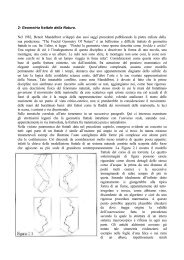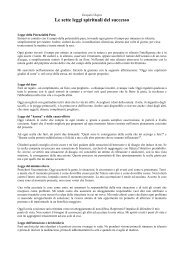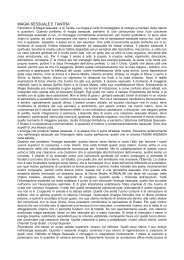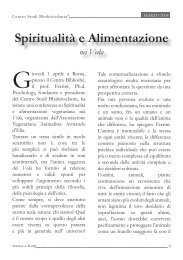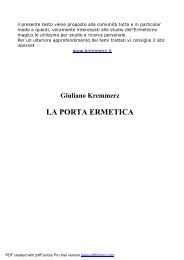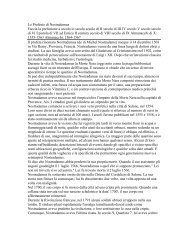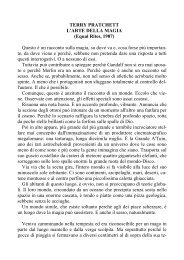112 ~ TALIBANthe requirements of the Holy Koran,' said Attorney General Maulvi JalilullahMaulvizada. 11 The Taliban could not explain how a deeply rootedreligion like Islam could be so undermined at the hands of adulterers.All tribal Pashtuns also followed Pashtunwali, a social code which gavethe tribal jirga or council the right to make judgments on cases from atraditional pantheon of laws and punishments, especially when it cameto disputes over ownership of land and women and murder. The linebetween Pashtunwali and Sharia law has always been blurred for the Pashtuns.Taliban punishments were in fact drawn largely from Pashtunwalirather than the Sharia. But Pashtunwali was practised in varying degrees,to a lesser or greater extent across the Pashtun belt and it certainly didnot govern the practices of other ethnic groups. The fact that the Talibanwere determined to impose Pashtunwali-Sharia law on these ethnicgroups by force only deepened the ethnic divide in the country. Non-Pashtuns saw this is an attempt to impose Kandahari Pashtun laws on theentire country.There were no political conditions in which the Taliban were preparedto compromise. After every military defeat they tightened their genderpolicies ferociously, under the assumption that harsher measures againstwomen would sustain morale amongst their defeated soldiers. And everyvictory led to another tightening because the newly conquered populationshad to be shown Taliban power. The policy of 'engagement' withthe Taliban to moderate their policies, advocated by the internationalcommunity, gave no dividends. And their insistence that they wouldallow women's education after the war was over became more and moremeaningless. The capture of Herat in 1995 was the first indicator toAfghans and the outside world that the Taliban would not compromiseon the gender issue. Herat, the heart of medieval Islam in the entireregion, was a city of mosques and madrassas, but it had an ancient, liberal,Islamic tradition. It was the home of Islamic arts and crafts, miniaturepainting, music, dance, carpet-making and numerous stories about itsredoubtable and beautiful women.Heratis still recount the story of Queen Gowhar Shad, the daughter-inlawof the conquerer Taimur who moved the Timurid capital from Samarkandto Herat in 1405 after Taimur's death. One day in the company of200 'ruby-lipped', beautiful ladies-in-waiting, the Queen inspected amosque and madrassa complex she was building on the outskirts of Herat.The madrassa students (or taliban) had been asked to vacate the premiseswhile the Queen and her entourage visited, but one student had fallenasleep in his room. He was awoken by an exquisitely attractive lady-inwaiting.When she rejoined the Queen, the lady was panting and dishevelledby the exertions of passionate love-making and thus she was discovered.Instead of punishing her or the student, the Queen ordered all herjA VANISHED GENDER ~ 113ladies-in-waiting to marry the students in a mass ceremony so as to blessthem and ensure they avoided temptation in the future. She gave eachstudent clothes and a salary and ordered that husband and wife shouldmeet once a week as long as the students studied hard. It was the kind ofstory that epitomized the liberal, human tradition of Islam and madrassaeducation in Herat.The Taliban had no knowledge of Herat's history or traditions. Theyarrived to drive Herati women indoors. People were barred from visitingthe shrines of Sufi saints of which Herat had an abundance. The Talibancancelled out years of effort by the Mujaheddin commander Ismael Khanto educate the population, by shutting down all girls' schools. Most boys'schools also closed as their teachers were women. They segregated thefew functioning hospitals, shut down bathhouses and banned women fromthe bazaar. As a result Herati women were the first to rebel against Talibanexcesses. On 17 October 1996 more than 100 women protested outsidethe office of the Governor against the closure of the city's bathhouses.The women were beaten and then arrested by the Taliban religious police,who went from house to house warning men to keep their women indoors.The international media and the UN largely chose to ignore theseevents in Herat, but several Western NGOs realized the profoundimplications for their future activities. After a long internal debate andfruitless negotiations with the Taliban in Herat, UNICEF and Save theChildren suspended their educational programmes in Herat because girlswere excluded from them. 12 The suspension of these aid programmes didnot deter the Taliban, who quickly realized that other UN agencies werenot prepared to take a stand against them on the gender issue. Moreoverthey had succeeded in dividing the aid-giving community. UN policy wasin a shambles because the UN agencies had failed to negotiate from acommon platform. As each UN agency tried to cut its own deal with theTaliban, the UN compromised its principles, while Taliban restrictionson women only escalated. 'The UN is on a slippery slope. The UN thinksby making small compromises it can satisfy the international communityand satisfy the Taliban. In fact it is doing neither,' the head of a EuropeanNGO told me. 13The world only woke up to the Taliban's gender policies after theycaptured Kabul in 1996. The UN could not avoid ignoring the issue afterthe massive international media coverage of the Taliban's hanging offormer President Najibullah and the treatment of Kabul's women. Proteststatements from world leaders such as UN Secretary General BoutrosBoutros-Ghali, the heads of UNICEF, UNESCO, UNHCR and the EuropeanCommissioner for Human Rights met with no Taliban response. 14Beauty, hair and make-up salons were shut down in Kabul, as werewomen's bathhouses - the only place where hot water was available.
114 TALIBAN A VANISHED GENDER 115Tailors were ordered not to measure women for clothes, but learned tokeep the measurements of their regular customers in their heads. Fashionmagazines were destroyed. 'Paint your nails, take a snapshot of a friend,blow a flute, clap to a beat, invite a foreigner over for tea and you havebroken a Taliban edict,' wrote an American reporter. 15Until Kabul, the UN's disastrous lack of a policy had been ignored butthen it became a scandal and the UN came in for scathing criticism fromfeminist groups. Finally the UN agencies were forced to draw up acommon position. A statement spoke of 'maintaining and promoting theinherent equality and dignity of all people' and 'not discriminatingbetween the sexes, races, ethnic groups or religions'. 16 But the same UNdocument also stated that 'international agencies hold local customs andcultures in high respect'. It was a classic UN compromise, which gavethe Taliban the lever to continue stalling, by promising to allow femaleeducation after peace came. Nevertheless, by October 1996 the UN wasforced to suspend eight income-generating projects for women in Kabul,because women were no longer allowed to work in them.During the next 18 months, round after round of fruitless negotiationstook place between the UN, NGOs, Western governments and the Taliban,by which time it became clear that a hardline lobby of Taliban ukmain Kandahar were determined to get rid of the UN entirely. The Talibantightened the screws ever further. They closed down home schools forgirls which had been allowed to continue and then prevented womenfrom attending general hospitals. In May 1997 the religious police beatup five female staff of the US NGO Care International and thendemanded that all aid projects receive clearance from not just the relevantministry, but also from the Ministeries of Interior, Public Health, Policeand the Department of the Promotion of Virtue and Prevention of Vice.This was followed by a demand that all Muslim female humanitarianworkers coming to Afghanistan be accompanied by a male relative.Finally in July 1997 the Taliban insisted that all 35 UN and NGO agenciesmove out of their offices to one pre-selected compound at thedestroyed Polytechnic building. As the European Union suspended furthurhumanitarian aid, the UN and the NGOs left Kabul.The plight of Afghanistan's women often hid the fact that urban malesdid not fare much better under the Taliban, especially non-Pashtuns. AllKabul males were given just six weeks to grow a full beard, even thoughsome of the ethnic groups such as the Hazaras have very limited beardgrowth. Beards could not be trimmed shorter than a man's fist, leading tojokes that Afghanistan's biggest import-export business was male facialhair and that men did not need visas to travel to Afghanistan, they justneeded a beard. The religious police stood at street corners with scissorscutting off long hair and often beating culprits. Men had to wear theirshalwars or baggy trousers above the ankle and everyone had to say theirprayers five times a day.The Taliban also clamped down on homosexuality. Kandahar's Pashtunswere notorious for their affairs with young boys and the rape of youngboys by warlords was one of the key motives for Mullah Omar in mobilizingthe Taliban. But homosexuality continued and the punishments werebizarre if not inhuman. Two soldiers caught indulging in homosexualityin Kabul in April 1998 were beaten mercilessly and then tied up anddriven around Kabul in the back of a pick-up with their faces blackenedby engine oil. Men accused of sodomy faced the previously unheard of'Islamic' punishment of having a wall toppled over them.In February 1998 three men sentenced to death for sodomy in Kandaharwere taken to the base of a huge mud and brick wall, which was thentoppled over them by a tank. They remained buried under the rubble forhalf an hour, but one managed to survive. 'His eminence the Amir-ulMomineen [Mullah Omar] attended the function to give Sharia punishmentto the three buggerers in Kandahar,' wrote Arris, the Taliban newspaper.17 In March 1998 two men were killed by the same method inKabul. 'Our religious scholars are not agreed on the right kind of punishmentfor homosexuality,' said Mullah Mohammed Hassan, epitomizingthe kind of debates the Taliban were preoccupied with. 'Some say weshould take these sinners to a high roof and throw them down, whileothers say we should dig a hole beside a wall, bury them, then push thewall down on top of them.' 18The Taliban also banned every conceivable form of entertainment,which in a poor, deprived country such as Afghanistan was always inshort supply anyway. Afghans were ardent movie-goers but movies, TV,videos, music and dancing were all banned. 'Of course we realize thatpeople need some entertainment but they can go to the parks and see theflowers, and from this they will learn about Islam,' Mullah MohammedHassan told me. According to Education Minister Mullah Abdul Hanifi,the Taliban 'oppose music because it creates a strain in the mind andhampers study of Islam'. 19 Singing and dancing were banned at weddingswhich for centuries had been major social occasions from which hundredsof musicians and dancers made a living. Most of them fled to Pakistan.Nobody was allowed to hang paintings, portraits or photographs in theirhomes. One of Afghanistan's foremost artists, Mohammed Mashal, aged82, who was painting a huge mural showing 500 years of Herat's historywas forced to watch as the Taliban whitewashed over it. Simply put, theTaliban did not recognize the very idea of culture. They banned Nawroz,the traditional Afghan New Year's celebrations as anti-Islamic. Anancient spring festival, Nawroz marks the first day of the Persian solarcalendar when people visit the graves of their relatives. People were for-
- Page 1 and 2:
YALE NOTA BENE"The broader storyher
- Page 3 and 4:
TalibanMilitant Islam,Oil and Funda
- Page 5 and 6:
Vi ~ CONTENTSChapter 8A Vanished Ge
- Page 7 and 8:
AFGHANISTAN•^ UZBEKISTAN J TAJIKI
- Page 9 and 10:
2 ~ TALIBANaccounts for some 40 per
- Page 11 and 12:
"6 ~ TALIBANgas riches of landlocke
- Page 13 and 14: 10 ~ TALIBANgious mix that was to m
- Page 15 and 16: Part 1History of theTaliban Movemen
- Page 17 and 18: 18 ~ ISLAM OIL AND THE NEW GREAT GA
- Page 19 and 20: 22 ~ ISLAM OIL AND THE NEW GREAT GA
- Page 21 and 22: 26 ~ ISLAM OIL AND THE NEW GREAT GA
- Page 23 and 24: 30 ~ ISLAM OIL AND THE NEW GREAT GA
- Page 25 and 26: 34 TALIBANKabul- Hikmetyar had alli
- Page 27 and 28: 38 ~ TALIBANrHERAT 1995: GOD'S INVI
- Page 29 and 30: 42 ~ TALIBANdo manage to take Kabul
- Page 31 and 32: J46 ~ TALIBANgreater weight to UN e
- Page 33 and 34: 50 ~ TALIBANas they hung from steel
- Page 35 and 36: 54 ~ TALIBANthey would help rearm t
- Page 37 and 38: 58 TALIBANGul Mohammed Pahlawan, Gh
- Page 39 and 40: 62 TALIBAN2,500 Taliban, who had re
- Page 41 and 42: 66 TALIBANshould throw all aid agen
- Page 43 and 44: 70 ~ TALIBANyears of battle and hel
- Page 45 and 46: 74 ~ TALIBANThousands of Hazaras we
- Page 47 and 48: 78 TALIBANhas become a plague,' sai
- Page 49 and 50: NEW STYLE FUNDAMENTALISM OF THE TAL
- Page 51 and 52: 86 TALIBANsity students - Hikmetyar
- Page 53 and 54: 90 TALIBANSharia was heavily influe
- Page 55 and 56: 94 TALIBANinflamed the debate in th
- Page 57 and 58: 98 TALIBANizing factor of Islam, it
- Page 59 and 60: 102 TALIBANadministrations made the
- Page 61 and 62: 106 ~ TAUBANfrom working, but it no
- Page 63: TALIBANUniversity, she held down a
- Page 67 and 68: 118 TALIBANUS$1,300 - a small fortu
- Page 69 and 70: 122 TALIBANper cent of the total Pa
- Page 71 and 72: 126 TALIBANequipment, no electricit
- Page 73 and 74: 130 ~ TALIBANfight with the Mujahed
- Page 75 and 76: 134TALIBANAugust 1996 noted that Bi
- Page 77 and 78: 138 ~ TALIBANwho were using the Kho
- Page 79 and 80: 11DICTATORS AND OILBARONS: THE TALI
- Page 81 and 82: 146 TALIBAN DICTATORS AND OIL BARON
- Page 83 and 84: 150 — TALIBANgrowth of beards and
- Page 85 and 86: 154TALIBAN1998 when international o
- Page 87 and 88: 158 ~ TALIBANaround Afghanistan? Af
- Page 89 and 90: 162 TALIBAN ROMANCING THE TALIBAN 1
- Page 91 and 92: 166 TALIBAN ROMANCING THE TALIBAN 1
- Page 93 and 94: ROMANCING THE TALIBAN 2: 1997-99 17
- Page 95 and 96: 174 — TALIBANnon-Russian pipeline
- Page 97 and 98: 178 — TALIBANROMANCING THE TALIBA
- Page 99 and 100: 182 ~ TALIBANApril 1999. 'The US ha
- Page 101 and 102: 186 ~ TALIBANters or the transport
- Page 103 and 104: 190 ~ TALIBANThis Wild West of free
- Page 105 and 106: 194 ~ TALIBANgovernance. Pakistani
- Page 107 and 108: 198 TALIBAN SHIA VERSUS SUNNI: IRAN
- Page 109 and 110: 202 TALIBAN SHIA VERSUS SUNNI: IRAN
- Page 111 and 112: 206 — TALIBANin Afghanistan - to
- Page 113 and 114: 210 — TALIBANand antagonism. The
- Page 115 and 116:
214 ~ TALIBANdrawn since 1996 - a P
- Page 117 and 118:
218 ~ TALIBANated and severely puni
- Page 119 and 120:
Origins of Members of the Taliban M
- Page 121 and 122:
APPENDIX 3 ~ 227Appendix 3A CHRONOL
- Page 123 and 124:
230 ~ TALIBANgraves near Shebarghan
- Page 125 and 126:
234 ~ TALIBAN8 June. US FBI places
- Page 127 and 128:
238 ~ TALIBAN1995 January16 MarchAp
- Page 129 and 130:
242 ~ TALIBANJune21 August10 Septem
- Page 131 and 132:
246 ~ TALIBANDupree, Nancy Hatch, A
- Page 133 and 134:
250 ~ NOTESChapter 31 Interview wit
- Page 135 and 136:
254 ~ NOTESmuddin, Religious Police
- Page 137 and 138:
258 NOTES13. The Japanese company M
- Page 139 and 140:
262 ~ NOTES28. Waxman, Sharon, 'A c
- Page 141 and 142:
Abbas, Mulla Mohammed 22,61,100Abda
- Page 143 and 144:
INDEX - 270Hazaras (continued)burea
- Page 145 and 146:
INDEX ~ 274nF»r\/FaliViar» milita
- Page 147:
INDEX ~ 278Talibans (continued)Sunn




